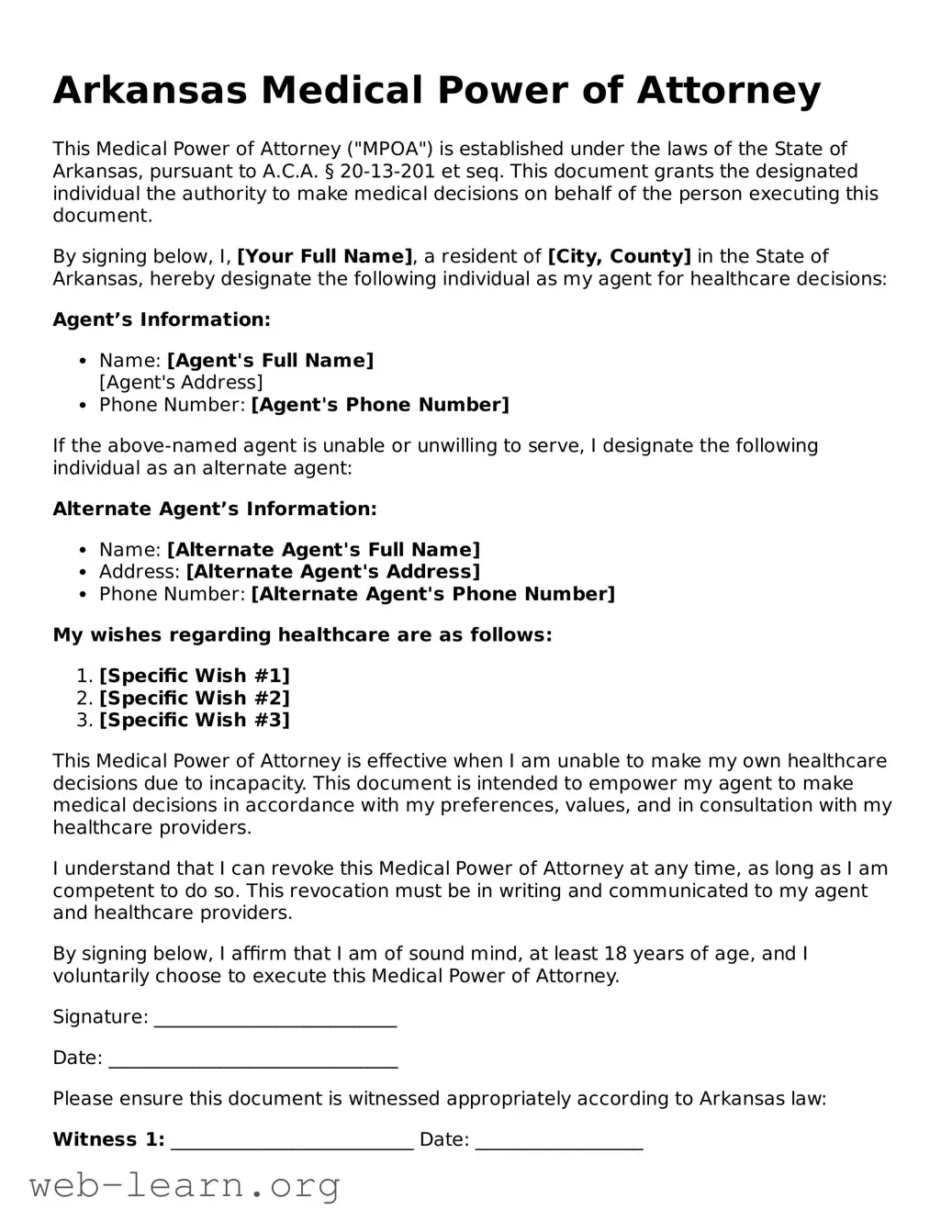Arkansas Medical Power of Attorney
This Medical Power of Attorney ("MPOA") is established under the laws of the State of Arkansas, pursuant to A.C.A. § 20-13-201 et seq. This document grants the designated individual the authority to make medical decisions on behalf of the person executing this document.
By signing below, I, [Your Full Name], a resident of [City, County] in the State of Arkansas, hereby designate the following individual as my agent for healthcare decisions:
Agent’s Information:
- Name: [Agent's Full Name]
[Agent's Address]
- Phone Number: [Agent's Phone Number]
If the above-named agent is unable or unwilling to serve, I designate the following individual as an alternate agent:
Alternate Agent’s Information:
- Name: [Alternate Agent's Full Name]
- Address: [Alternate Agent's Address]
- Phone Number: [Alternate Agent's Phone Number]
My wishes regarding healthcare are as follows:
- [Specific Wish #1]
- [Specific Wish #2]
- [Specific Wish #3]
This Medical Power of Attorney is effective when I am unable to make my own healthcare decisions due to incapacity. This document is intended to empower my agent to make medical decisions in accordance with my preferences, values, and in consultation with my healthcare providers.
I understand that I can revoke this Medical Power of Attorney at any time, as long as I am competent to do so. This revocation must be in writing and communicated to my agent and healthcare providers.
By signing below, I affirm that I am of sound mind, at least 18 years of age, and I voluntarily choose to execute this Medical Power of Attorney.
Signature: __________________________
Date: _______________________________
Please ensure this document is witnessed appropriately according to Arkansas law:
Witness 1: __________________________ Date: __________________
Witness 2: __________________________ Date: __________________
